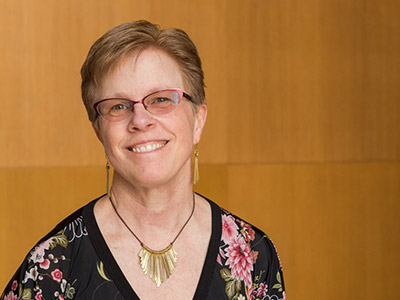Elizabeth “Betty” Bekemeier, director of the Northwest Center for Public Health Practice (NWCPHP) at the University of Washington School of Public Health, has received a five-year, $2 million grant to help rural public health leaders better use data to promote health equity.

Supported by the U.S. Department of Health and Human Services’ Office of Minority Health, the Solutions in Health Analytics for Rural Equity across the Northwest (SHARE-NW) project will advance public health practice efforts in Washington, Oregon and Alaska to more effectively address health inequities, particularly in rural communities.
“This project aims to create a more complete picture of rural health disparities so we can improve what we’re doing to achieve health equity,” said Bekemeier, also adjunct associate professor of health services and associate professor of psychosocial and community health at the UW. “We want to help practice leaders examine public health resources, services and local needs in new ways, allowing for system-wide innovations.”
Too frequently, rural areas are plagued by what researchers call the “double disparity.” That is, their communities often have worse health outcomes than their urban counterparts, and their health departments are far less staffed and poorly funded to address the issues. In the Northwest, this is particularly true for drug use and interpersonal violence. Geographical isolation, distance from medical care and the lack of culturally appropriate services also contribute to these disparities.
Bekemeier will lead a multi-disciplinary team from the NWCPHP to tackle this problem. SHARE-NW’s co-directors include Anne Turner, associate professor of health services and of biomedical informatics and medical education; Uba Backonja, assistant professor of nursing and adjunct assistant professor of biomedical informatics and medical education; and India Ornelas, associate professor of health services.
A key focus of the project will be to identify, gather and visualize data to help health leaders better understand, communicate and address health disparities among their populations. Examples include administrative data and indicators that mark the social determinants of health. The project will also provide training and technical support to rural practitioners on how to better gather and interpret data that inform decision making about prevention programs and resource allocation.
“We’re very excited to have this opportunity to help address such an important data and capacity gap for and with our rural public health partners in the Northwest,” Bekemeier said. “It’s a critical step toward reducing disparities and improving health equity in our region.”
Learn more about Bekemeier and her vision for the NWCPHP.
